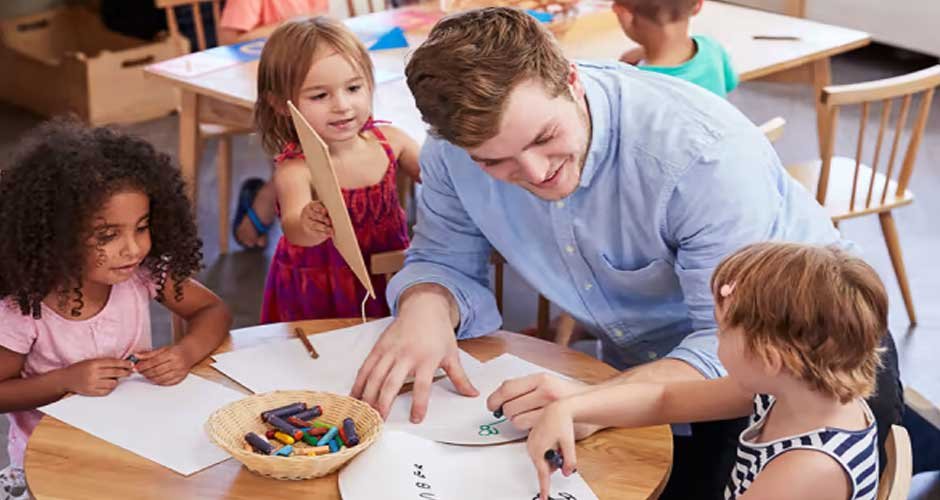The early years of a child’s life are a crucial period for developing social and emotional skills. These foundational years shape how children learn to interact with others, manage their emotions, and build relationships. Parents, caregivers, and educators all play a vital role in guiding young learners through these important milestones. In this article, we’ll explore how to encourage social and emotional growth in early learners, why it matters, and how to create supportive environments that foster this development.
Why Social and Emotional Development Matters
Social and emotional growth refers to the process by which children learn to understand and manage their own emotions, develop empathy for others, and build strong social connections. These skills are essential for a child’s overall wellbeing and success in life. They are also closely linked to other areas of development, including cognitive and language growth.
At childcare centres like childcare Sylvania, social and emotional learning is woven into everyday activities to help children grow in a supportive environment. With the right guidance, children can learn valuable lessons about kindness, communication, and emotional regulation from an early age, setting them up for success both inside and outside the classroom.
The Role of Caregivers in Early Social and Emotional Development
Parents, educators, and caregivers have a significant role to play in fostering a child’s social and emotional growth. By modelling positive behaviour, providing a safe and nurturing environment, and encouraging open communication, caregivers can help children build the skills they need to thrive emotionally and socially.
1. Modelling Positive Behaviour
Children learn a great deal by observing the adults around them. When parents and caregivers demonstrate healthy emotional regulation, empathy, and positive social interactions, children naturally begin to imitate these behaviours. It’s important to be mindful of how you express emotions and resolve conflicts in front of children, as they are constantly learning from these experiences.
2. Encouraging Open Communication
Encouraging children to express their emotions openly is a key part of emotional development. Create a safe space where children feel comfortable sharing their thoughts and feelings without fear of judgement. Simple phrases like “How are you feeling today?” or “It’s okay to be upset” can help children understand that their emotions are valid and important.
Building Emotional Intelligence in Young Learners
Emotional intelligence, or the ability to understand and manage one’s emotions and empathise with others, is a vital skill that can be nurtured from an early age. Developing emotional intelligence in young learners helps them build resilience, cope with stress, and navigate social interactions with confidence.
1. Helping Children Identify Their Emotions
One of the first steps in developing emotional intelligence is teaching children to identify and label their emotions. Use simple language to describe feelings, such as “happy,” “sad,” “angry,” or “scared,” and encourage children to use these words when discussing how they feel. You can also introduce emotion cards or visual aids to help children better understand different emotions.
2. Teaching Emotional Regulation
Once children can identify their emotions, the next step is helping them regulate those feelings. This involves teaching them healthy ways to cope with emotions like frustration or disappointment. Techniques such as deep breathing, counting to ten, or taking a break can be valuable tools for children to calm down and process their feelings.
3. Promoting Empathy
Empathy is the ability to understand and share the feelings of others, and it is a critical component of social development. Encourage children to consider how others might be feeling in different situations. Phrases like “How do you think your friend feels right now?” or “What can we do to make them feel better?” can help children develop a sense of empathy and compassion for others.
Creating a Supportive Social Environment
In addition to emotional development, building strong social skills is an important part of a child’s growth. Children need opportunities to interact with peers, practice sharing, and learn how to resolve conflicts in a positive way.
1. Encouraging Cooperative Play
Playtime offers one of the best opportunities for children to learn social skills. Encourage cooperative play, where children work together towards a common goal, whether it’s building a tower, solving a puzzle, or engaging in pretend play. This helps them practice teamwork, communication, and negotiation.
2. Promoting Sharing and Turn-Taking
Learning to share and take turns is a significant social milestone for young children. Model and encourage these behaviours by providing opportunities for children to practice sharing toys or waiting their turn during group activities. Praise positive behaviours, and gently guide children through conflicts when they arise, helping them understand the importance of fairness and cooperation.
3. Teaching Conflict Resolution
Conflicts are a natural part of social development, and teaching children how to resolve disputes peacefully is an essential skill. Encourage children to use their words to express their feelings and needs, rather than resorting to physical actions. Guide them through problem-solving by asking questions like, “What happened?” and “How can we fix this together?” This helps children learn to navigate conflicts in a healthy, respectful manner.
The Importance of a Safe and Nurturing Environment
Children are more likely to thrive emotionally and socially when they feel safe, supported, and nurtured. Whether at home or in a childcare setting, creating a positive environment is crucial for fostering healthy development.
1. Building Trust and Security
Young children need to feel secure in their relationships with caregivers in order to explore and develop their social and emotional skills. Be consistent in your interactions with children, offering comfort and reassurance when needed. By building strong, trusting relationships, you create a foundation that allows children to confidently engage with the world around them.
2. Providing Consistent Routines
Consistency is key when it comes to supporting a child’s social and emotional growth. Establishing clear routines and expectations helps children feel safe and know what to expect, which reduces anxiety and fosters a sense of stability. Simple routines, like regular mealtimes and bedtime rituals, give children a sense of control and help them manage transitions.
3. Offering Positive Reinforcement
Positive reinforcement is an effective way to encourage desired behaviours and support emotional growth. Praise children for their efforts in managing their emotions or playing cooperatively with others. Acknowledging their successes helps build their self-esteem and reinforces the positive social and emotional skills they are learning.
The Role of Early Education in Social and Emotional Development
Early childhood education settings play a pivotal role in nurturing social and emotional growth. Quality childcare centres provide structured opportunities for children to interact with peers, develop emotional regulation skills, and build positive relationships with adults outside their family.
Educators at early learning centres are trained to create environments that support children’s social and emotional needs. By providing activities that encourage teamwork, creativity, and problem-solving, early educators help children develop the skills they need to succeed in school and beyond.
Nurturing Young Minds
Social and emotional growth in early learners is a vital part of their overall development. By providing a supportive, nurturing environment and guiding children through the process of understanding and managing their emotions, caregivers and educators can help set the stage for lifelong success. Whether at home or in settings like childcare Sylvania, encouraging social connections and emotional intelligence in early childhood is one of the most important investments we can make in a child’s future.












